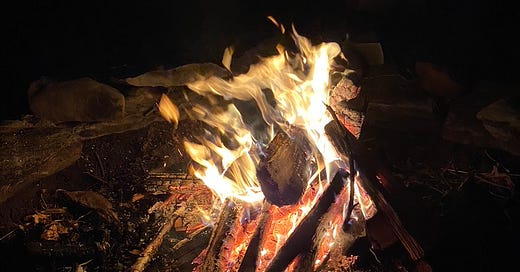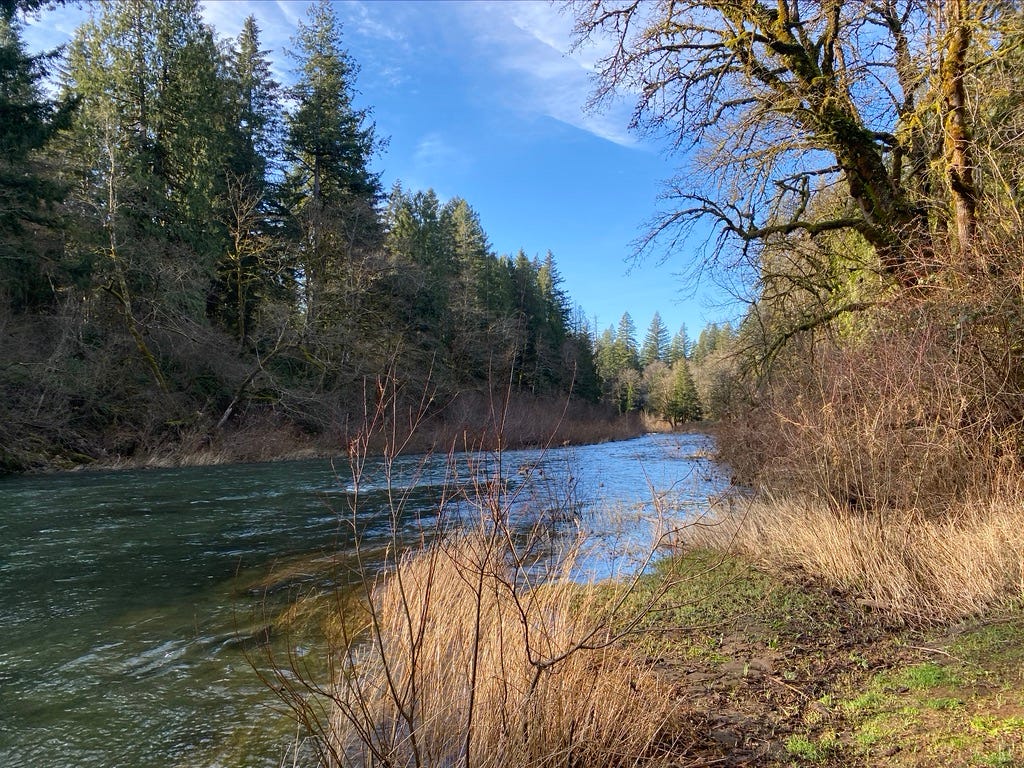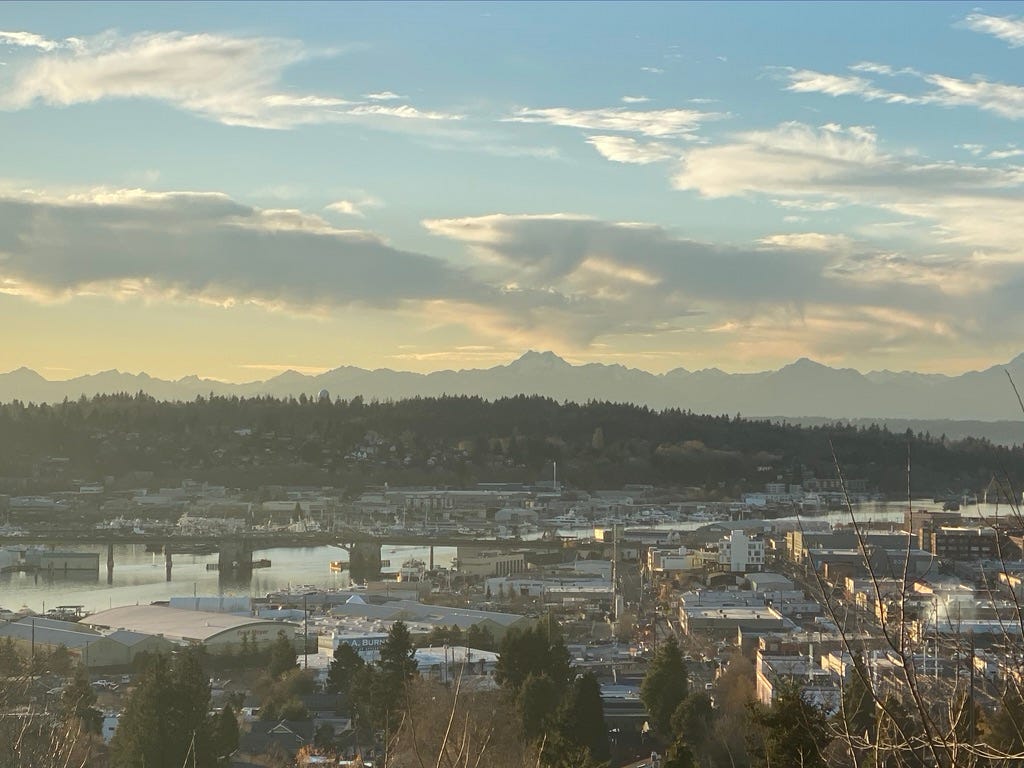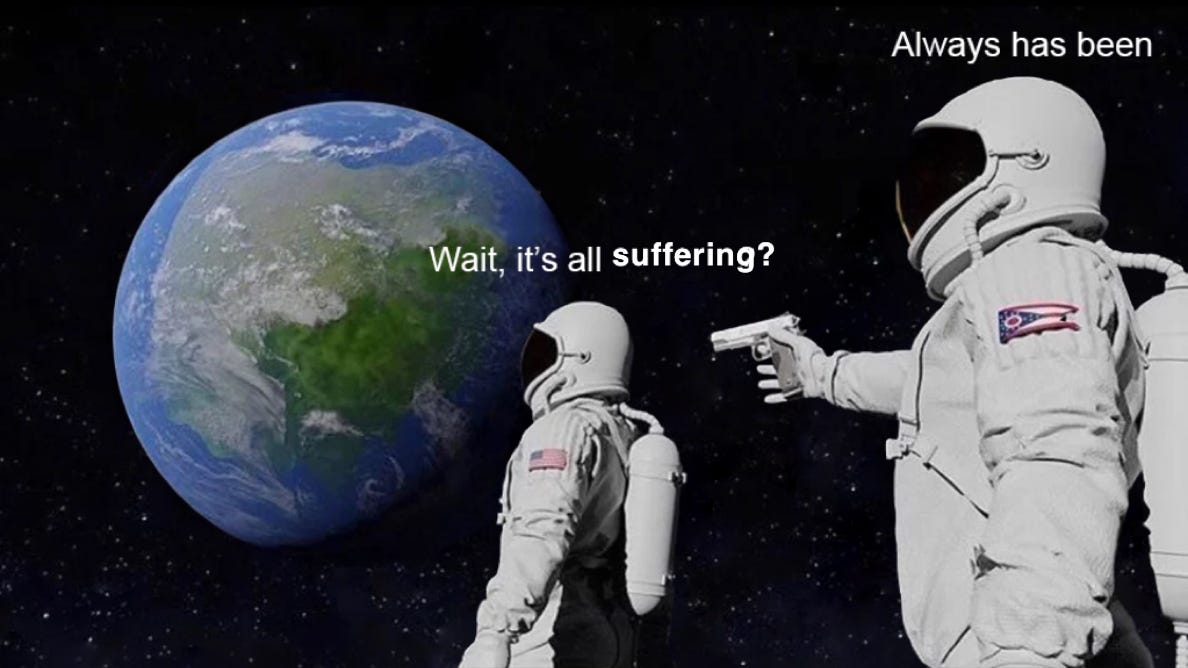At the dawning of AD 21, two whole millennia ago, artisans in Rome began manufacturing what we now know as the first metal pens in the world. It seems fitting to ring in 2021 in words, then—though no single newsletter can possibly convey What A Year It’s Been and all that we’ve lost, learned, gained, feared, and so on.
I had initially thought I might try to do some kind of big year-end roundup, the way that these things are usually done, tabulating the movies or music or books that defined my 2020. But I’m not sure my year warrants it, at least not in a way I could write about convincingly. What was it Seneca said? Light griefs are loquacious, but the great are mute.
Instead I find myself turning to poetry, which I have buried myself in this year like no other in my life. I’ve found that I generally have no patience for poems that run beyond one page: I prefer to be punched in the mouth, once, quick. I like poems that say I see you and you’ve felt this way too, even if you never had the words to describe it before. They are welcome reminders to be more observant—of nature, of my own heart, of the rich interior lives of others.
David Whyte is a poet who manages to deliver all those things I’m looking for. And his poem “The Journey” feels like it was written to be read at the close of one year in preparation for the sunrise of a new one.
Above the mountains
the geese turn into
the light againPainting their
black silhouettes
on an open sky.Sometimes everything
has to be
inscribed across
the heavensso you can find
the one line
already written
inside you.Sometimes it takes
a great sky
to find thatfirst, bright
and indescribable
wedge of freedom
in your own heart.Sometimes with
the bones of the black
sticks left when the fire
has gone outsomeone has written
something new
in the ashes of your life.You are not leaving.
Even as the light fades quickly now,
you are arriving.
Even if you feel like your life has burned down around you this year—well, you’re not alone, and Whyte’s words are a timely reminder about that burning not necessarily being the end of newness or creation. You are not leaving, you are arriving.
That should feel good, I think. We are all poised to step tentatively into a year that—at the risk of jinxing things—the balance of probability says will be a better one than the year we are departing. This is not to say that our concerns should disappear; things are, on the whole, still Very Bad in about a thousand different ways, and will remain so until we destroy the malignant roots of our problems. But I am cautiously optimistic that with the end of the Trump presidency, with the distribution of the vaccine beginning and another (too-small) relief check likely incoming, that some people might start getting their heads above water, if even for a moment, sometime soon. Leftist “accelerationists” believe that things have to get catastrophically worse in perpetuity in order for capitalism’s contradictions to overwhelm the system and create an opportunity for replacing it with something new. I am hardly so cynical; I would argue that—while desperation is often a necessary precondition of being willing to fight for change—being able to breathe is also required.
I think it is also important to talk about the things we love, the things that excite us, the little things that make each of us ourselves, for the simple reason that their existence is the only reason any fight for our future is worth having. If there is any unifying theme to my newsletter it seems to be that Things Are So Bad In Ways You Never Dreamed Of, But Oh Man Isn’t It Just So Good To Be Alive? I do not see these poles as a contradiction. In fact, the latter must be true for the former to matter at all.
In keeping with our theme here let’s let the poets say it better than I ever could. In this case, Jack Gilbert will do:
We must risk delight. We can do without pleasure,
but not delight. Not enjoyment. We must have
the stubbornness to accept our gladness in the ruthless
furnace of this world. To make injustice the only
measure of our attention is to praise the Devil.
If the locomotive of the Lord runs us down,
we should give thanks that the end had magnitude.
We must admit there will be music despite everything.
To make injustice the only measure of our attention is to praise the Devil. I love that phrase, a cri de coeur for this humble publication if ever there was one. It is carefully crafted: this is not some “Don’t worry, be happy!” bullshit that seems totally inadequate for the world we actually live in, but it is a useful directive. We each much bear so much misery in this life that it is not helpful to heap more upon oneself for the sake of principle. We must admit there will be music despite everything.
Music, art, friendship—it might seem shallow, hollow, to speak of our abstract needs, what our souls demand, while so much tangible, material suffering goes unalleviated. (In my case, I take comfort in knowing that if you click on any previous issue of this newsletter at random you will not be able to say that I have ignored the material suffering of the world, either.) Nevertheless these are important considerations, and when we are granted the space to recognize those little gifts that move us I think them worth pointing out. Even so calculating a character as Sherlock Holmes could do this. He says, holding up a flower in The Naval Treaty:
…this rose is an extra. Its smell and its color are an embellishment of life, not a condition of it. It is only goodness which gives extras, and so I say again that we have much to hope from the flowers.
It is only goodness that gives extras. And while those extras aren’t, in sum, enough to save anyone from what truly ails us, I would argue that they are among our keenest weapons against alienation and despair. We deserve happiness, contentment, fulfillment, all of it, which is—again—not to say that we should turn from the horrid world to pursue our own individual wants, but precisely the opposite.
Of course, it is also worth noting that even embracing these moments of happiness, great or simple, still requires a degree of intentionality. We are all so overwhelmed, or at least distracted, in These Uncertain Times that finding a few moments of meditative contentment is something I actually have to schedule for myself—in my case, I walk around my neighborhood and try to find a tree or bush or flower I can’t name and then try to identify it with an app or book, or I find one I can name and harvest some of its needles or leaves or petals to make tea with, or occasionally do something even more insufferably romantic than that.
Devin Kelly (who I also quoted from heavily a few weeks ago) recently wrote about this same idea, that if happiness is to be more than fleeting, it must be practiced.
Aren’t so many of these moments of happiness — so often described as being in the right place at the right time — the result of practice? The practice of the mind, the body, or whatever you mean by the spirit?…It is a daily practice. It requires belief, dare I say faith, in my own humanness and the humanness of those around me. What results from this is the potential for joy in a world that so often terrifies me because of its — and my own — lack of joy.
What I long for in this world is an acknowledgment of practice…What, I want to ask people, are you practicing?…I want to know how you are being intentional about the life beneath your life, especially if you have the privilege and time to make this choice. I want to know how you are actively trying to be in this life when everyone, including me, including you, is more or less imperfect. I think this requires vulnerability, the kind that Merton gave up to God when he became, as he might say, a servant of his suffering. It is all suffering, isn’t it? I want to know how we aren’t giving up.
I want to know, too.
Kelly has his own newsletter, each issue tackling a single poem. Through that medium I recently discovered Christopher DeWeese’s “The Field,” which closes as follows. I can think of no better prayer to finish this year than that which is uttered in its final lines.
Like distant trains,
the stars help us move closer
to what tiny faith
lurks within our breathing.
Sitting on the porch,
I’ll believe anything.
That we are better than we are.
That we might find better ways
to want to be.
That we might find better ways to want to be. (And that we don’t stop at wanting them, but commit our lives to working for them.)
Very few people are working in an office with a water cooler these days, so in recognition of what you’re missing, allow me to be the first to say: I’ll talk to you next year.
-Chuck
PS - My first book, A Good Place for Maniacs: Dispatches from the Pacific Crest Trail came out this year—you can buy it online wherever books are sold, or by clicking the button below. You can also find it on the Kindle, Kobo, and Google Play stores as an e-book.
PPS - If you liked what you read here, why not subscribe and get this newsletter in your inbox each week? It’s free and always will be.
PPPS - The newsletter will be on hiatus next week, as I return to online teaching, union work, etc. after the holiday, unless I am struck by something worthwhile that I can write about easily.








Terrific as always. And to the author I wish a new year full of love and the extras that make living so worthwhile.